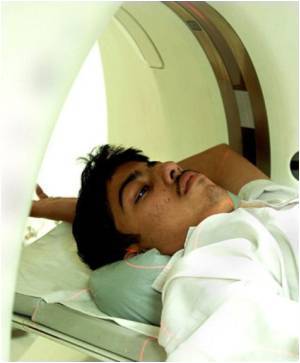
High-grade glioma patients who did not experience neurological side effects during chemoradiation for the brain cancer were found to have lived 4 months longer compared to those who did experience such effects.
The findings suggest the importance of normal tissue damage in determining long-term survival and how minimizing side effects could end in more positive outcomes.
The team reports their findings from a retrospective analysis of high-grade glioma patients from the Radiation Therapy Oncology Group (RTOG) database.
“As survival in glioblastoma multiforme increases, the prevention of treatment related side-effects becomes more important,” said Yaacov Richard Lawrence, MRCP, an Assistant Professor in the Department of Radiation Oncology at Thomas Jefferson University and director of the Center for Translational Research in Radiation Oncology at Sheba Medical Center in Israel.
“It is generally considered that the only way to improve survival in malignant brain tumors is to more effectively attack the tumor,” Dr. Lawrence said. “Fascinatingly, our research suggests that damage to surrounding normal tissue may also play a role in determining a patient’s long term outcome.”
Advertisement
Standard treatment for the cancer typically includes surgery, radiation and chemotherapy after the tumor is identified. It is often impossible to determine whether these treatments, the combination of these treatments or the tumor itself cause neurological symptoms, which include fatigue, headache, nausea, motor/sensory disturbance, short-term memory loss and/or seizures.
Advertisement
“Our results support the personalized approach to brain tumor management currently being developed within the Jefferson Multidisciplinary Brain Clinic, and emphasize the importance of minimizing side effects,” Dr. Lawrence said.
The findings have been reported in the April issue of the British Journal of Cancer.
Source-Medindia






